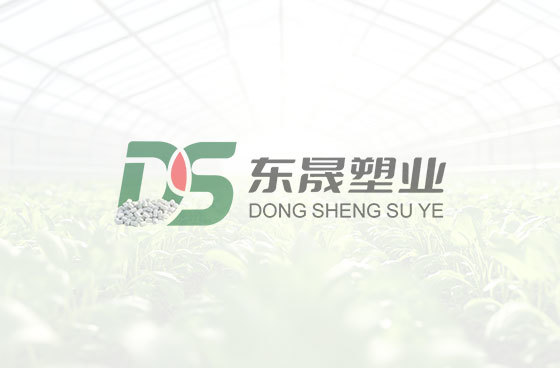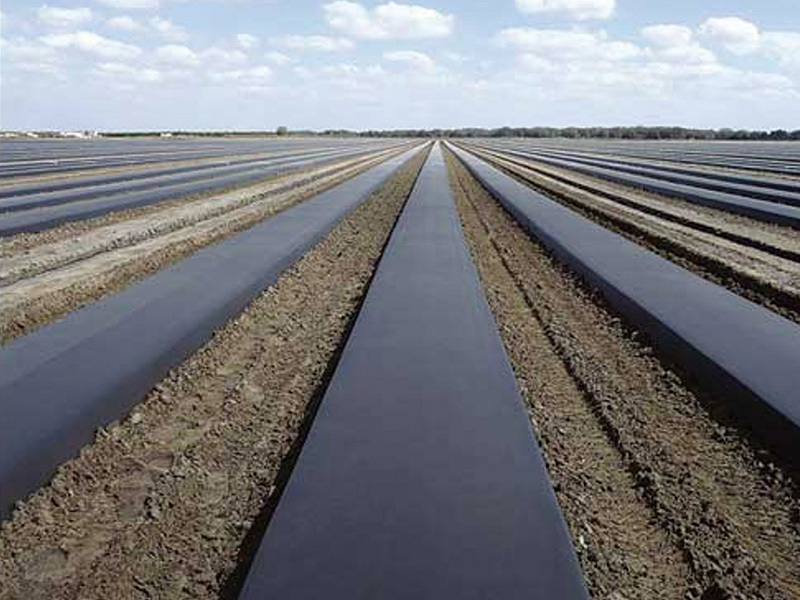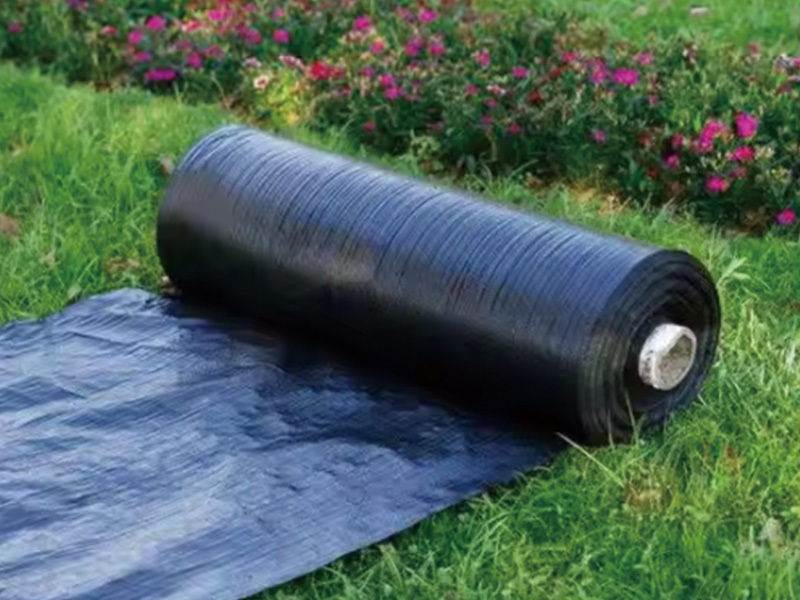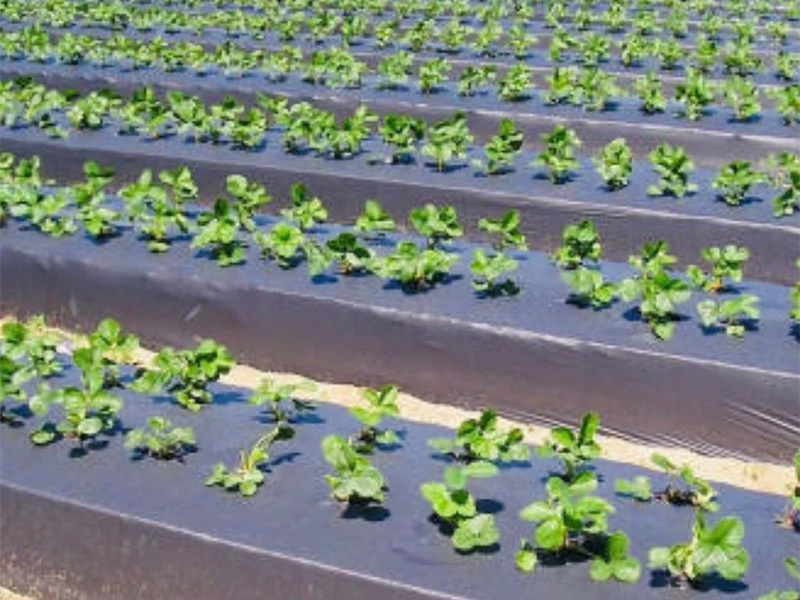Suitable crops for black plastic mulch
Publish Time:
2025-06-24
Black plastic mulch film, due to its low light transmittance, heat and moisture retention, and weed suppression properties, is suitable for use on the following types of crops, especially those that require moderate soil temperatures, weed suppression, or reduced water evaporation:
I. Solanaceous Crops
These crops prefer warmth but are intolerant of high temperatures. Black plastic film can stabilize soil temperature, reduce weed competition, and prevent soil compaction from affecting root development.
Tomato: Suppresses weed growth, reduces diseases and pests (such as virus diseases carried by weeds), maintains soil moisture, and promotes uniform fruit development.
Chili pepper / Bell pepper: Prevents drastic soil temperature fluctuations, reduces the risk of physiological diseases such as blossom-end rot, and reduces labor costs for weeding.
Eggplant: Maintains a stable root environment, improves early yield, and is especially suitable for reducing high root temperature stress during summer cultivation.
II. Leguminous Crops
Leguminous crops require good soil aeration. Black plastic film can reduce soil water evaporation and prevent weeds from competing for nutrients.
Kidney bean / String bean: Suppresses weed growth, reduces competition with legumes for nitrogen and other nutrients, promotes root nitrogen fixation, and improves pod setting rate.
Cowpea: In rainy areas or seasons, black plastic film can reduce soil moisture fluctuations, reducing root rot and flower/pod drop.
III. Cucurbit Crops (Some Varieties)
Suitable for cucurbits that require temperature control and weed prevention but do not have high soil temperature requirements, especially suitable for late-maturing varieties or summer cultivation.
Late-maturing watermelon: Avoids excessive early spring growth caused by rapid temperature increase under clear plastic film; summer coverage can lower root temperature and extend the harvest period.
Melon (such as hard-rind melon): In areas with strong sunlight and high temperatures, black plastic film can prevent excessively high soil temperatures from scorching roots and reduce diseases (such as wilt) caused by weed growth.
IV. Root and Tuber Crops
Black plastic film can keep the soil loose and reduce weed interference with the development of underground organs.
Potato: Suppresses weed growth, prevents weeds from competing with tubers for space, reduces soil water evaporation, and maintains the moisture needed during tuber expansion.
Radish / Carrot: Prevents soil compaction, promotes smooth and uniform root development, reduces canopy closure caused by weeds, and reduces the incidence of aphids and other pests.
V. Leafy Vegetables (Some Scenarios)
Suitable for summer cultivation or leafy vegetables with dense weeds, reducing root damage from weeding.
Spinach / Lettuce: When sowing in summer, covering with black plastic film can lower soil temperature, maintain soil moisture, and improve germination rate; weed suppression can prevent competition with leafy vegetables for light and nutrients.
Celery: Used in high-temperature seasons to reduce soil water evaporation and prevent celery from developing increased fiber and reduced quality due to drought.
VI. Other Cash Crops
Strawberry: Autumn coverage with black plastic film can suppress weeds, maintain soil temperature, and promote root development; spring coverage can reduce upward movement of soil moisture, reduce gray mold incidence, and make the fruit color more uniform.
Chinese herbal medicine (such as Salvia miltiorrhiza, Scutellaria baicalensis): Covering with black plastic film during the seedling stage can suppress weed growth, reduce damage to seedlings from manual weeding, and maintain soil nutrients for root absorption.
Usage Notes
1. Climate and Season:
Use with caution in early spring low-temperature areas, as black plastic film is slow to warm up and may delay seedling growth; more suitable for high-temperature areas in summer, it can cool and retain moisture.
In rainy areas, pay attention to firmly pressing the soil around the edges of the film to prevent rainwater from washing away the film.
2. Soil Conditions:
Suitable for loose, fertile soil. Heavy soil needs to be improved in structure first to avoid waterlogging under the film causing root rot.
3. Recycling and Disposal:
Prioritize biodegradable black plastic film (such as starch-based film). Traditional polyethylene film needs to be recycled promptly after harvest to avoid soil pollution.
By reasonably selecting crop types and application timing, black plastic film can significantly improve temperature control, water retention, and weed suppression, thereby improving crop yield and quality.
Previous
BLOGS

Unveiling the Power of Black&Silver Color Plastic Mulch Films in Agriculture
Discover how Black&Silver Color Plastic Mulch Films can revolutionize your farming strategy. Learn about their benefits and applications.

Unlocking the Benefits of Black Embossed Mulch Film in Modern Agriculture
Explore the latest trends and advantages of using black embossed mulch film in agriculture.

Unlocking the Secrets of Black&Silver Color Plastic Mulch Films
Discover the benefits and applications of Black&Silver Color Plastic Mulch Films in gardening and agriculture.

Unlocking the Secrets of Black Embossed Mulch Film in Modern Agriculture
Discover how Black Embossed Mulch Film is revolutionizing farming practices and enhancing crop yields.

Mastering Strawberry Planting Skills for a Bountiful Harvest
Unlock the secrets of effective strawberry planting skills and enjoy a thriving garden full of juicy strawberries!

The Wonders of Black Embossed Mulch Film: A Gardener's Best Friend
Discover how black embossed mulch film can revolutionize your gardening experience. Learn tips and benefits!










